

Budgeting, debt, and all the other financial-terms can make you shrink back and bring up a swell of negative, overwhelming emotions. Let me encourage you, it doesn’t have to be that way! We have the power to take control of our finances and our mindset towards it. Sami Womack is really great at taking the concept of living really well, living fully, and living abundantly and applying that to finances. She has this very realistic approach to budgeting, being a good steward of your money, and getting out of debt. Her family has an amazing story that I am really excited for you to hear!
In This Episode Allie + Sami Discuss:
How changing your mindset about your worth can change your finances.
Simple tips for starting a budget and examples of a budget for the average family.
The most common misconceptions that (mothers in particular) have about money and budgeting.
Ways you can approach budgeting positively and deal with all those heavy overwhelming emotions that come with finances.
Mentioned in this Episode:
Sami’s Website
Sami’s Facebook
Sami’s Instagram
Sami’s Pinterest
Sami’s Course: Take Control of Your Spending
Sami’s Course: Your Sunny Money Method
Allie’s Courses
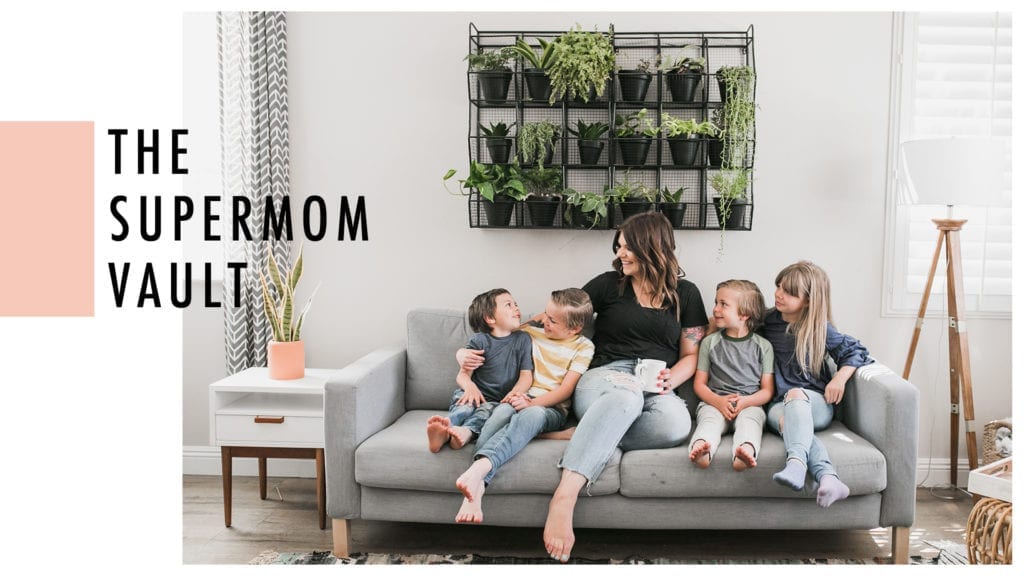

The Supermom Vault is a library of inspiration I created for you. It holds replays of my very best online workshops that aren’t available anywhere else, tons of really actionable pdf’s that are downloadable with just one click, more than 20 audio and video trainings from me, and professionally designed printables for your home to keep you focused and inspired.
The Supermom Vault is only $39.00 and it’s a really good, simple place to start.


Mom life. We are surrounded with the message that it’s the tired life. The no-time-for-myself life. The hard life. And while it is hard and full of lots of servitude, the idea that motherhood means a joyless life is something I am passionate about putting a stop to. I’m on a mission to help you stop counting down the minutes till bedtime, at least most days. I want you to stop cleaning up after your kid’s childhood and start being present for it. Start enjoying it. I believe in John 10:10 “that we are called to abundant life” and I know mothers are not excluded from that promise. Join me in conversations about simplicity, minimalism and lots of other good stuff that leads to a life of less for the sake of enjoying more in your motherhood. I’m Allie Casazza and this is The Purpose Show.
_______________________________________________________________
Hey ladies! Welcome to another episode of The Purpose Show. I’m here with my friend, Sami Womack. I’m really excited that she’s here.
Sami does a lot of bouncing off of the idea of living really well, living fully, and living abundantly, but definitely more geared towards the financial aspect of what that would look like.
She has this very realistic approach to budgeting, for lack of a better word, (I really don’t like the word budget, but it is what it is) and just kind of I guess being a good steward of your money and getting out of debt. Her family has an amazing story. So, we’re just going to dive in.
ALLIE: So Sami, tell us about your family before we get into the finance stuff.
SAMI: Okay. So, me and my husband, Daniel, have been married almost 10 years and we have three daughters. Our oldest is 7. We have a 4-year-old and a 2-year-old. All girls. We are also a homeschooling family and we are from East Texas. My husband has an offshore job, so he’s gone for three weeks at a time and then he’s home for three weeks at a time. So, it’s amazing with homeschooling and living so minimally we have so much free time and we can really use all of that time when he’s home.
ALLIE: Yeah, that’s awesome. I understand that too because for us, when we put the kids in school temporarily, we had worked so hard to get out of the typical 9-5, everyone vacations at the same time schedule, and school puts you right back in that. So, I can imagine if he was gone and then he comes home and you’re like, “Okay, girls, bye!” That’s awesome.
Okay. So, I want to get in with you to how and why did you start sharing about money and budgeting and kind of start spreading this message. You really reach everybody. You’re not really specifically women. How did you get into that?
SAMI: Well, I do kind of focus a little more towards women and a little more towards families. I do have a lot of women who are readers and even students who are single or married with no kids, which I think that’s still a family, whatever you consider your family.
I do everything kind of family-based and usually for the women who take care of the money in that part of the household chores, because I think it’s just another part of your household duties really.
We started getting out of debt about four years ago now and then I’ve been blogging and coaching for almost two years now. And really why I started doing it was because I just wanted to share, you know? I just wanted to spread this message. This had literally saved my life, saved my marriage. It saved my motherhood and it saved me. It brought me closer to God. It brought me closer to myself, like literally every single aspect.
And so, I was just like, more people need to know about this, you know? I don’t see a lot of young women, young family type people, talking about this. Everybody knows Dave Ramsey and I love Dave Ramsey. A lot of his teaching is kind of where I started because I didn’t know anybody else. There wasn’t really anybody else.
But you know, he’s an older man. And I was like, “I kind of want to hear it from a fellow mom, you know? I want that mom perspective. I want somebody who understands what it’s like to budget in formula, and two kids in diapers. My youngest two are 20 months apart. They literally were both in diapers while we were paying off debt.
ALLIE: I had three in diapers at once and for a period of time. It was crazy and it was so expensive. And I think too, not just your season of life as a mother and with young kids, but just your season of life from your age is so different. He’s amazing. I love Dave Ramsey and he can speak to that, but there is something about hearing it from somebody really in it right now. And I love that you’re a woman. I love that you have young girls. I love that you’ve gone through what you’ve gone through. And you’re right. A lot of our age bracket or even “millennial” women are not thinking about money because we’re not at the point where it’s like, “Oh, you have to start thinking about retirement” or it’s kind of forced because of your age. You talk about getting there now, dealing with that now, getting financially secure now. And I really liked that.
SAMI: Yeah. And it’s a lot of the same things you teach about being intentional with your family and being intentional in your motherhood. We say “budgeting” for kind of lack of a better word, but it’s really just intentionality with your money. It’s being intentional.
And I throw in a lot of positive thinking. I’m a Christian so I throw in prayer and a lot of different things. So, it’s not just strictly budgeting and money mindset and all of that kind of stuff because I think it’s also important.
One of the things that I really speak to a lot of my ladies about is that worthiness and we feel like we’re so young, we feel like, “Oh, I’m just a mom. Who am I to have aspirations to be a millionaire? I’m just a regular person.” So, I kind of try to break that and speak to those women about their worthiness, their mindset and all of those kinds of things.
ALLIE: And so much of anything that we want to do or anyone we want to become is a mindset issue, so I think it’s really good that you don’t ignore that or just “I guess they can figure that out for themselves.” You really equip people. I’ve seen your affirmations and all of that and you know I’m big into all that.
You’re dealing with the “root” important things and the surface things like “Yeah, you’re in debt. You have a credit card problem. You have a shopping problem. You have an income problem. But those all came from somewhere, so let’s get to the root and fix what’s going to make this last.”
I know that your family has pulled out of how much debt in how much time?
SAMI: $490,000 in about 3 – 3½ years.
ALLIE: And I’m sure that you are aware that mindset is such a big part of that because you went through that and that is what really led to you falling all the way through and creating that lasting change.
SAMI: Yeah. One of the things that I always like to share is that my husband has had the same job for 11 years. He’s had this job longer than we’ve been married. We’ve been together the whole time, but he has only gotten gradual little tiny raises. He basically is making the same amount of money that he was making 11 years ago. So it’s just like when we had no kids, we weren’t married, we were renting a little apartment. The job didn’t change. What changed? It was our mindset, it was our spending habits, that we weren’t being able to make it with basically the same income. Now we’re able to be out of debt and keep three kids fed. It was all our habits, our spending habits and our mindset because the income wasn’t the issue, which it is for some people, but it’s not always the issue.
ALLIE: Right. And that’s the thing that everyone always says too. You think, “Oh, if I just had $500 more a month, then we could make this work.” Then you get that, and it’s not enough. You increase as your money increases. So no matter if you have a six-figure income a month or way, way, way less than that, almost at poverty level, you have to make it work with what you have. It’s always never going to be really enough if you choose to have that mindset and you can change that.
So, what would you say is maybe one of the biggest or most common misconceptions that mothers in particular have about money and budgeting?
SAMI: I think that they feel the guilt and they feel like they’re going to be depriving their kids. “I can’t not let them do that extracurricular or I can’t send them to school without Nike’s.” They don’t want to put them in a little house. They want the best for their kids. As a mother, I feel that way too, and I’ve totally dealt with all of that guilt and that kind of “show” and that “materialism” kind of thing. But you know, as a mother that is so important and you want the best for your kids, but the real question is, “Is that really the best for your kids?” Or is showing up and actually being able to be there for them, have more quality family time, rather than parents who are working, working, working (which if you’re in debt you’re going to have to kind of hustle) but do you want to live in that hustle forever?
Focusing on the quality time – that’s way more important. Saving for them to go to college one day or getting your money right, so parents aren’t fighting in front of them about money. They’re not getting divorced over money. I think that is ultimately the most important thing.
ALLIE: Right. And when you look back, your kids are not going to care that you didn’t give them designer shoes and send them to school in that. They’re going to remember that you always argued about money.
I know that you’re a fan of Jen Sincero’s books and a lot of what she says is that you want to deal with your money mindset issues. Think back to when you were a kid. What was going on about money? You got to deal with the root stuff. And we’re forming that for them whether we realize it or not.
It’s so much more important to give them that stability, live a good life, debt free or close to debt free, and un-tense life financially, than to “buy” them love. And I think especially if people come from poverty, that might be a big trigger for them and they feel lead to just kind of “buy” their love, buy their contentment I guess. And I love that you talked about that. I think it’s really common.
SAMI: That’s kind of a lot of how we got ourselves into debt. Neither one of us came from money. My husband has a pretty good job. And so he was like, oh well that means we’ve made it. So now we have to have the big house to show for it. We have to have the nice vehicles and the nice clothes. We have to go out to eat to show that we’re successful. And that’s actually what ended up getting us into debt.
Now we’re in a tiny two-bedroom rental house and we’re much happier. We don’t really care what anybody thinks now because we know what our savings account looks like. Back then it was “fake rich” and now it’s like actually growing wealth, not all materialism. And what are we showing our kids? We’re showing them that how you look on the outside to society is the most important thing or what you’re actually doing inside and at home is really what’s more important?
ALLIE: Yeah, absolutely. And you’re living within your means. It’s fine to have a bigger house and the nice things if you can do that and have both. But you realize status is nothing. It’s not something that we’re going to care about anymore. So, here’s what’s within our means. Would we rather have more of this or more of this? And you made that choice. I love that.
SAMI: It’s also an abundant mindset kind of thing. We’re still on this journey. We’re still working on it. We’re working to get away from that “scarcity” mindset. We are being really intentional with our money and we don’t want to have to be forever. We’re helping our kids and we’re helping ourselves realize there’s so much more. And so, we’re working on that abundance mindset with them as well. It’s not like, oh, we’re stuck in this little house and we’re going to be stuck here forever. Get into that more abundant mindset.
ALLIE: Yeah, absolutely. I just wanted to ask you, because I’ve experienced this so many times and I was just curious, maybe Texas is different, but when you guys were moving out of your big house and into this tiny rental with three kids, did the people renting it say “Why do you want to live here?”
SAMI: The current landlord that we have didn’t, but we did go and do a walk-through with a house that’s almost twice as big as this one. It was actually a three-bedroom house that was quite a bit bigger. The guy found out that we had three kids and he was like, “Oh well you don’t want this house.” They almost wouldn’t even show it to us.
ALLIE: I know! You know we have four kids and our house is three bedrooms, then we turned the garage into an office and gym. And the guy was like, “why?” And every single time before our houses have always been even smaller. This one at least has two levels. Our houses are always so small and they just didn’t understand it. We would get turned down because it was small for us, they were deciding it was too small. It was just funny.
SAMI: Those people basically pushed us out. We did go walk through it but they didn’t want to rent to us. But the guy we actually ended up renting this from, he was like, “Yeah, I raised my three kids here until they were teenagers. We bought a bigger house because they couldn’t all share room anymore.”
ALLIE: That’s awesome. There’s a funny quirk about being minimal and living simply.
SAMI: We’re fine. We’re so comfortable in this tiny house. We’re totally good.
ALLIE: People don’t understand – the bigger the house, the more stress. We’re at a point where Bella is 9 now and we’re probably going to grow our family this year, and we do need a little more space. It’s good. We need it. And I kept it as small as I possibly could, but it’s more. It’s more work. It’s more stress. It just is. So if you can get around it until you feel like you can’t or until you feel like it’s not worth it anymore, do it.
SAMI: And it was so cheap. We were like, “Yes! This is so cheap!”
ALLIE: You can go and do things. Or pour money into making the house decorated where you really love being there.
SAMI: And then you have a lot more wiggle room.
_______________________________________________________________
Hey friend! It’s Allie! Have you heard of the Supermom Vault yet?
The Supermom Vault is a library of inspiration I created for you. It holds replays of my very best online workshops that aren’t available anywhere else, tons of really actionable pdf’s that are downloadable with just one click, more than 20 audio and video trainings from me, and professionally designed printables for your home to keep you focused and inspired.
The Supermom Vault is only $39.00 and is available at alliecasazza.com/allcourses.
Check it out! It’s a really good simple start.
Want more inspiration than just the podcast? Do you wish there were more episodes? Want more details? Do you want videos? Do you want pdf’s? Do you want to download things and get your hands on something to really get you started when it comes to minimalism and simplifying your motherhood?
This is definitely the place to go!
Check it out! allialliecasazza.com/allcourses.
_______________________________________________________________
ALLIE: I don’t know if this is something you can pull off the top of your head, but what is a sample budget for an average family? Maybe if you could give some percentages? How much of a percent is a good starting point for things that they can have control over, like rent and car payments? I feel like you’re kind of set for awhile there, maybe you can have a long-term goal of changing those things, but right now like with groceries, what kind of a percentage of income should be spent on things that you can control?
SAMI: Well, I try not to put exact percentages on people because I feel like it really goes a lot with your priorities. It goes a lot with what is important to you with your house, what is important to you in your diet. A lot of people’s groceries are gonna look a lot different. Deciding on what size house you want is going to look a lot different. The part of the country you live in can be way different.
So, I try to get away from that because I try to really tell people it’s your budget and it should really reflect your priorities. Like for example, this whole debt free journey we went without satellite TV to save the money. But yet we never took our daughter out of dance class and most people would be like that would be the first thing to go, but for us it was a priority, so we could make it work. It slowed us down $50 a month on getting debt free, but that was our priority.
I think it’s really about laying out your budget and looking at does this really reflect our priorities? Is our priority eating out $800 a month? Probably not. Are we spending too much on our house? Which is kind of where we were in our big house. It was too much. I really feel like it’s kind of a personal thing. I try not to do too much percentages.
One of the best outlines that I do is I tell everyone to start with your bills. You have to make sure your bills are paid. Then go into what should your spending money be second. Because you can always scrimp on groceries, get a cheaper brand or have a meatless dinner or do something a little bit cheaper.
And then what is leftover? Whatever’s leftover is what you apply to your debt or you save depending on where your priorities are. If there’s no money leftover, if you’re negative, work backwards. Reprioritize. “Yeah we do need to get rid of the satellite TV” or “Yeah, our house is too expensive” or “Yeah, we are spending too much on groceries.”
So, I do bills, spending and then savings. I keep those all three in separate bank accounts which is so, so helpful. We have a debit card for our bills account and we have a debit card for spending. We keep them separate so you never accidentally spend the rent money on groceries, that kind of thing. Or the electric bill is still pending and you go to Target and you think you have that much money and you really don’t. That keeps it separate. And your spending money, that’s what you’re allowed to spend until payday and when it’s gone, it’s gone.
ALLIE: And it’s very simplified, which is what you need when you’re overwhelmed.
I’m speaking personally (if you guys have listened to episode six of the podcast, you know, Brian and mine’s money and business story), but how do you handle if you have a client or if you yourself have really heavy emotional attachment to money issues? We just recently worked through this. I’d love to even do a second episode or something with you about this, because I think it could be a whole half-hour on its own. But we hired CFO’s because we were very overwhelmed by dealing with our money and that was something we just chose to delegate to bring yourselves more peace. And they were like, “Okay, so let’s go over your personal budget.” Even just the word made me go back to the past (I’m poor!), almost like PTSD.
So how can somebody who doesn’t have CFO’s, who doesn’t have all that, just a normal person with a budget kind of approach it? What I’m saying is I think you want to avoid when you’re scared, when you’re scarred, when you’ve been through something or even if you haven’t, just avoidance is such a cop-out for just not dealing with it. And then when it comes down to like, okay we have 200 bucks left and we’re not getting paid till Friday. How can we make this work? And that’s a bad cycle.
So how can somebody approach budgeting positively and deal with all those heavy overwhelming emotions?
SAMI: Yeah. That is the root of what I do and why I do it. I say that a lot (PTSD); I say that all the time. Our debit card got scammed a couple of months ago and it was just that PTSD of like, oh my gosh, we don’t have any money, I can’t use my debit card. And then I’m like okay, you have another account. It’s okay. But it really is like that – PTSD.
Honestly the way you work through that is just the way you work through any other traumatic experience. It’s going to take time. I think it’s a lot of really diving in and dealing with the heart issue behind it, dealing with the guilt or the PTSD-like stress from it.
That’s why I try to infuse a lot of motivation into what I do and a lot of mindset into what I do, because it’s so much more than just the numbers. It’s so much more. And then the spouses are getting back at each other – he spent this, so I’m going to go spend that. That root where you’ve hurt each other with money before. Or you’ve lied to yourself and you can’t forgive yourself.
That’s how I was. I had told myself, “Okay, I’m going to get serious, I’m going to budget, I’m going to do this.” And then I just kind of taper off. Like a workout program that you’re going to do, then three months later – what workout program?
I would do the same thing with budgeting and I lied to myself so many times. It’s just like dealing with any other heart issue. I suggest affirmations and journaling through that and looking for what are your triggers. Noticing, “Okay, I can’t grocery shop at Target because I can’t trust myself. I’m going to go in there and come out with new shoes. I’m supposed to go in for groceries.” If that is a trigger for you, then don’t grocery shop at Target.
There are people who tell me, “I can’t even trust myself with a debit card. I’ve got to go all cash.” Do what you’ve got to do. You’ve got to pay attention.
And it’s not going to be the same for every single person. It’s not cookie cutter. Every person’s story is different. Every person’s money situation is different. Everybody’s childhood has been different, their marriage is different. So, you’ve really got to dig in.
If you’re married you’ve got to just rip that Band-aid off and have that really painful first conversation. Somebody’s got to get the ball rolling. If you can just take a deep breath, jump in and just be like, “Hey, I think we need to sit down and talk.” One of the best things that we did was we sat down when the kids were in bed already. It was a late night, kind of like a date night kind of thing at home. A “dream” date is what I call it. We sat down and we shared our dreams and we ended up writing it down. That became our first goals list.
The thing is when you’re in survival mode and you’re just like payday, payday, payday, and that tunnel vision, oftentimes you haven’t talked about your dreams in a long time. You’ve talked about there’s not enough money for groceries, you’re arguing and you’re stressed. When was the last time you sat down and got excited about life together and dreamt about the future together?
That is a great first step if you’re married. Get excited about life. Dream. Write some things down. Then say, “Hey, if we want to accomplish these dreams, we’re going to have to work together.”
ALLIE: Focus on the positive goals, not the punishing budget.
SAMI: Exactly. And if you’re single, then get your best girlfriend, your sister, whoever you know is going to be a positive reinforcement for you, and do that with whoever that trusted person is in your life.
Definitely notice those triggers. Journal. Do all of those mindset things that you have to do to grow.
ALLIE: Yeah. For sure. Okay. If somebody is listening to this and they want to find more of your resources…I feel like you have a lot of really great free resources just from what I’ve seen pop up from following you. Give us your website. I know you also have a budget course and some other things going on, so share where they can find you.
SAMI: Okay, so my website is asunnysideuplife.com. I’m on Instagram with the same name and Facebook. I have a really great Facebook group. It’s growing and growing. A Sunny Side Up Life Community is a private group for women only, so it’s a safe environment where you can share your wins, your struggles, all that kind of stuff.
And yeah, I do have a lot of free content.
I’m on Pinterest. I’m on Youtube. Every Monday I do a motivational Monday video, so it’s basically 10 or 15 minutes of here’s your little pep talk for the week, here’s your little dose of motivation. Those are a lot of fun.
I blog. I have a free email course which is five days. It’s Take Control of Your Spending and it’s very, very basic of getting your feet wet with budgeting. It’s not overwhelming, it’s just one simple email a day for five days. You start tracking your spending, figuring out where your money’s going and all that to kind of just get your feet wet because it is a little scary at first, but you don’t have to be overwhelmed by it.
Then I have my full budgeting course. It’s called Your Sunny Money Method and it is 30 lessons. It’s 10 lessons on the “why” where we walk through the mindset behind it. All those questions like, What if your husband’s not on board? What do you do with your kids? How do you talk to your friends and family? All that stuff. Then 20 lessons on the “how.” It is so simple that we literally have one lesson on what to do before payday for your bills. One lesson on what to do on payday, one lesson for what to do after payday. So it’s very, very broken down, very simple, very beginner-friendly. You can just do one lesson at a time. You don’t have to get overwhelmed. You’re not going to leave crying “oh there’s one more chore.”
I’m really proud of it and we’ve had a lot of success with our students. All the ladies are doing amazing things. We also have a lot of bonuses. We do a live monthly group coaching, which is so great. We do it on zoom so everybody can come in with their little videos and we’re all just hanging out. You can ask questions. That’s included in the course. It’s worth the price of the course just to get that community and that access to me.
ALLIE: That kind of brings peace to talking about money and I love that you bring community into it because it would be very easy for you to not do that because talking about money is kind of taboo and it’s really not done. People just have such high emotions attached to money. They just don’t want to talk about it, especially with other people. So, I think it’s really neat that you do that and I think that is incredibly valuable. And how much inspiration would you get from going to something like that, you know, spending 30 minutes talking to other women about what they’re doing too.
SAMI: Yeah. And I just try to be really open, really honest and share “Guys, I’ve screwed up. I’m just a normal mom. I have three crazy kids. My house is loud. I spend money on diapers. I’m a normal mom like you.” I try to share where I’ve screwed up and that if you screwed up too, it’s okay. We all make mistakes and we can all still grow.
ALLIE: Yes. I love that. Well, we’ll link to all that for you guys in the show notes, Sammie’s website and her courses, her free course and all of that. I have your paid course and I have gotten your free course and it’s all very DIY. It’s very, very, very, very DIY. The format that your stuff is in, video and audio, and just the way that you talk about it… you give examples and you’re really good at talking through it to where I feel very intimidated by money and I feel like, oh well that is easy. Then I can do this. And it’s like I can do it myself. But you walked me through it to the point where it’s like I feel unintimidated and really capable. You definitely have a gift for what you do.
SAMI: That’s why I have a couple of intro videos and the first 10 lessons are just my face, just video talking and it’s kind of like, “Hey, it’s okay. We’re just friends. I’m going to get you through this.” Then by the time we get to the last 20 lessons where we’re actually setting up your budget, it’s slides and everything, but by then you’re like, “Hey girl we’re just hanging out. We’re good. It’s not scary, I promise.”
ALLIE: I love that. Okay. Well thank you so much. This was really empowering. It’s hard. People don’t want to talk about money, so I’m going to encourage everyone. Click this episode even though the word “money” is going to be in the title. Just dive in and get to a point where you feel capable, enabled and empowered to handle this important area of your life. Avoiding it just really doesn’t serve you at all. So thank you so much.
Okay guys. Once again, we’ll link to everything in show notes for this episode and we’ll catch you next time.
_______________________________________________________________
This was an episode of The Purpose Show. Did you know there is an exclusive community created solely for the purpose of continuing discussions surrounding The Purpose Show episodes? And to get you to actually take action and make positive changes on the things that you learn here? Go be a part of it. To join go to facebook.com/groups/purposefulmamas.
Thank you so much for tuning in. If you are ready to uplevel and really take action on the things I talk about on my show, and get step-by-step help from me, head to alliecasazza.com. There are free downloads, courses, classes, and ways to learn more about what the next step might look like for you and to focus on whatever you might need help with in whatever season you are in right now.
I am always rooting for you, friend!
See ya next time!


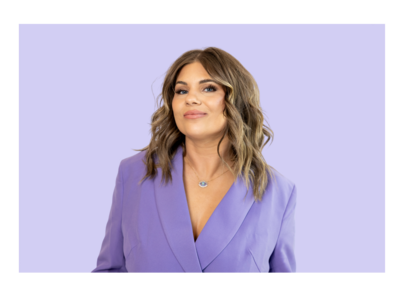

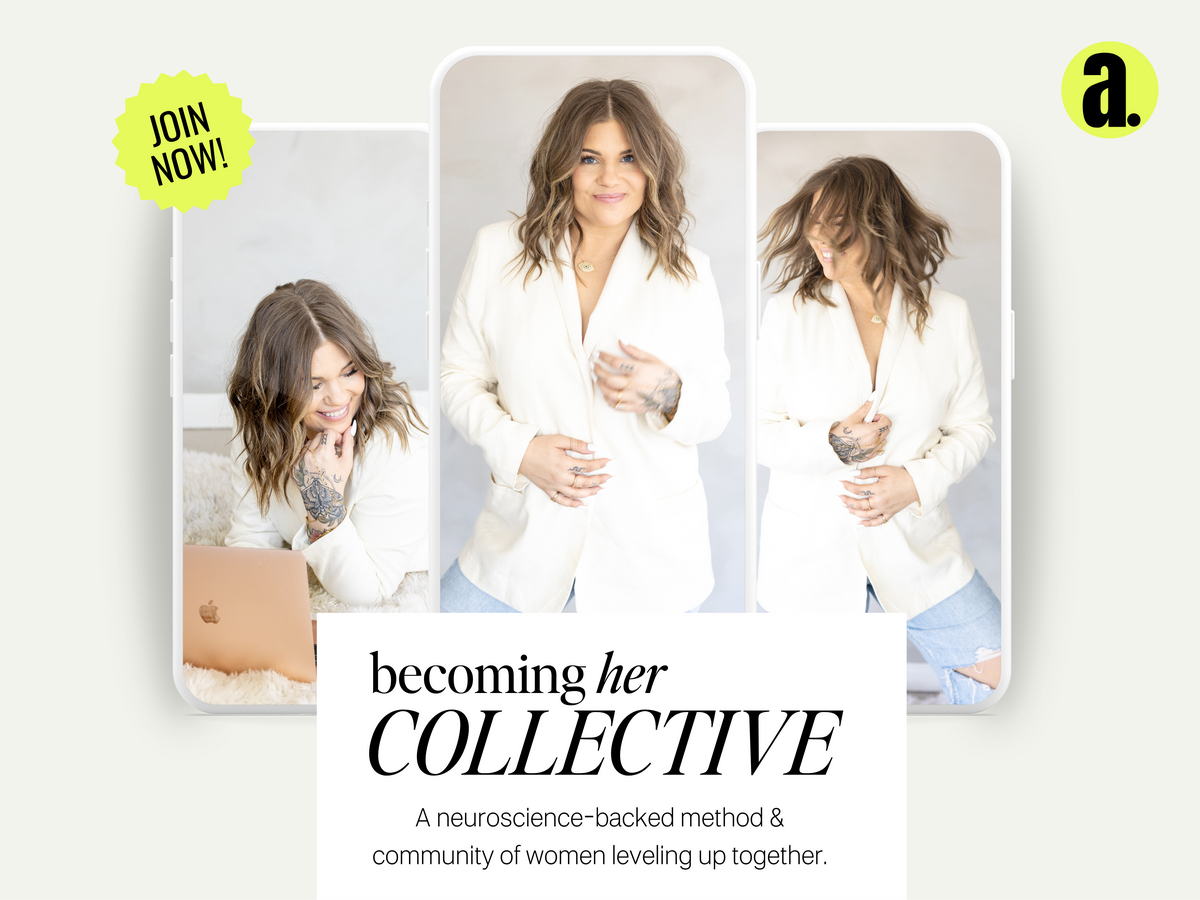

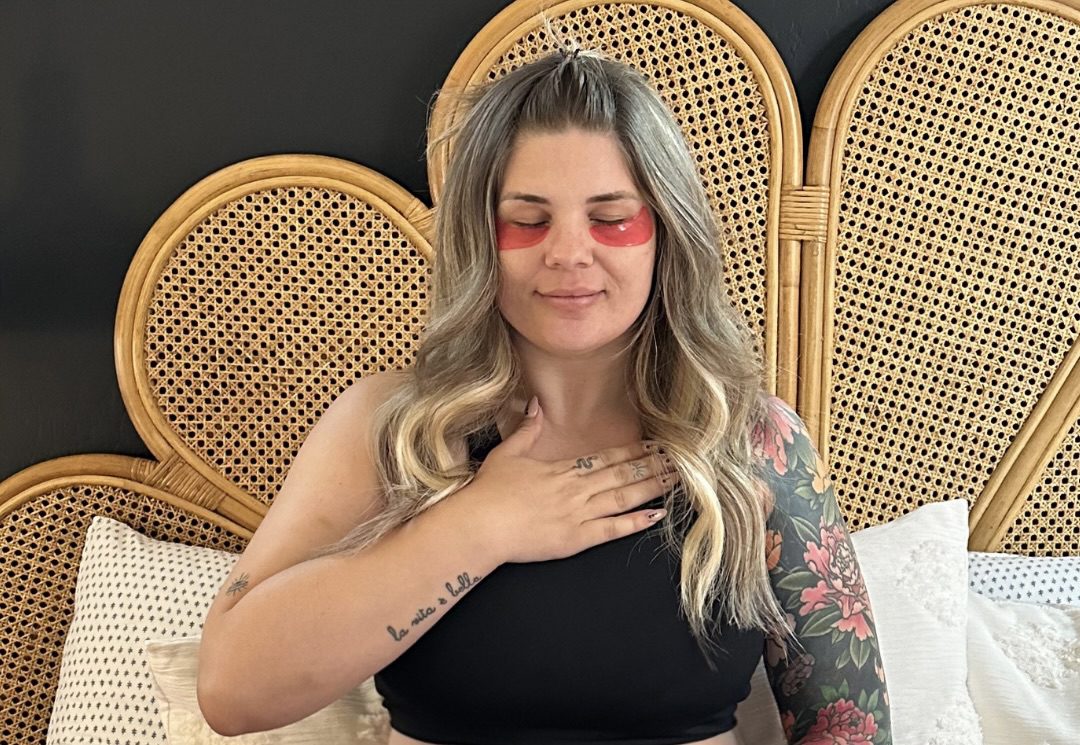

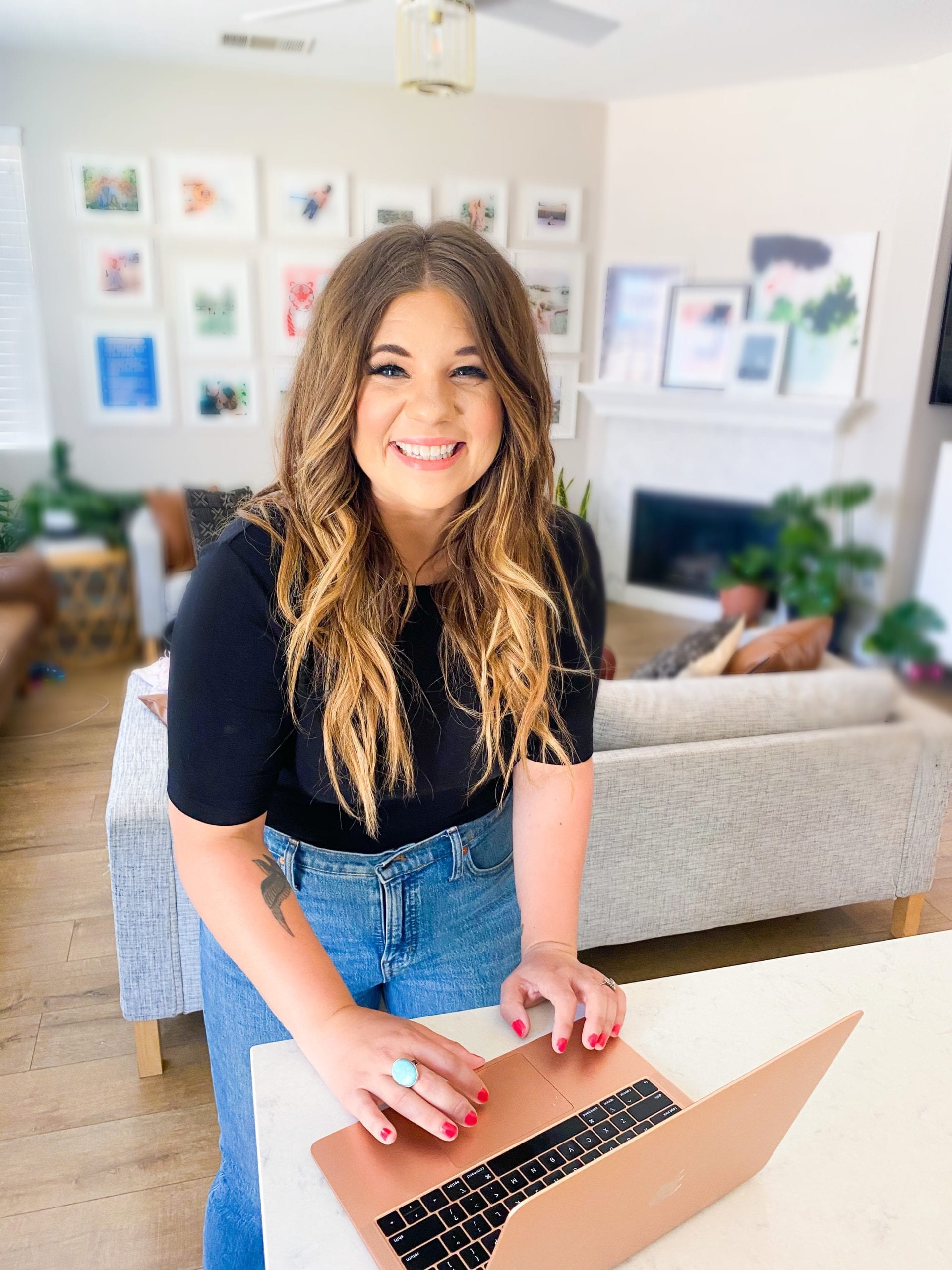

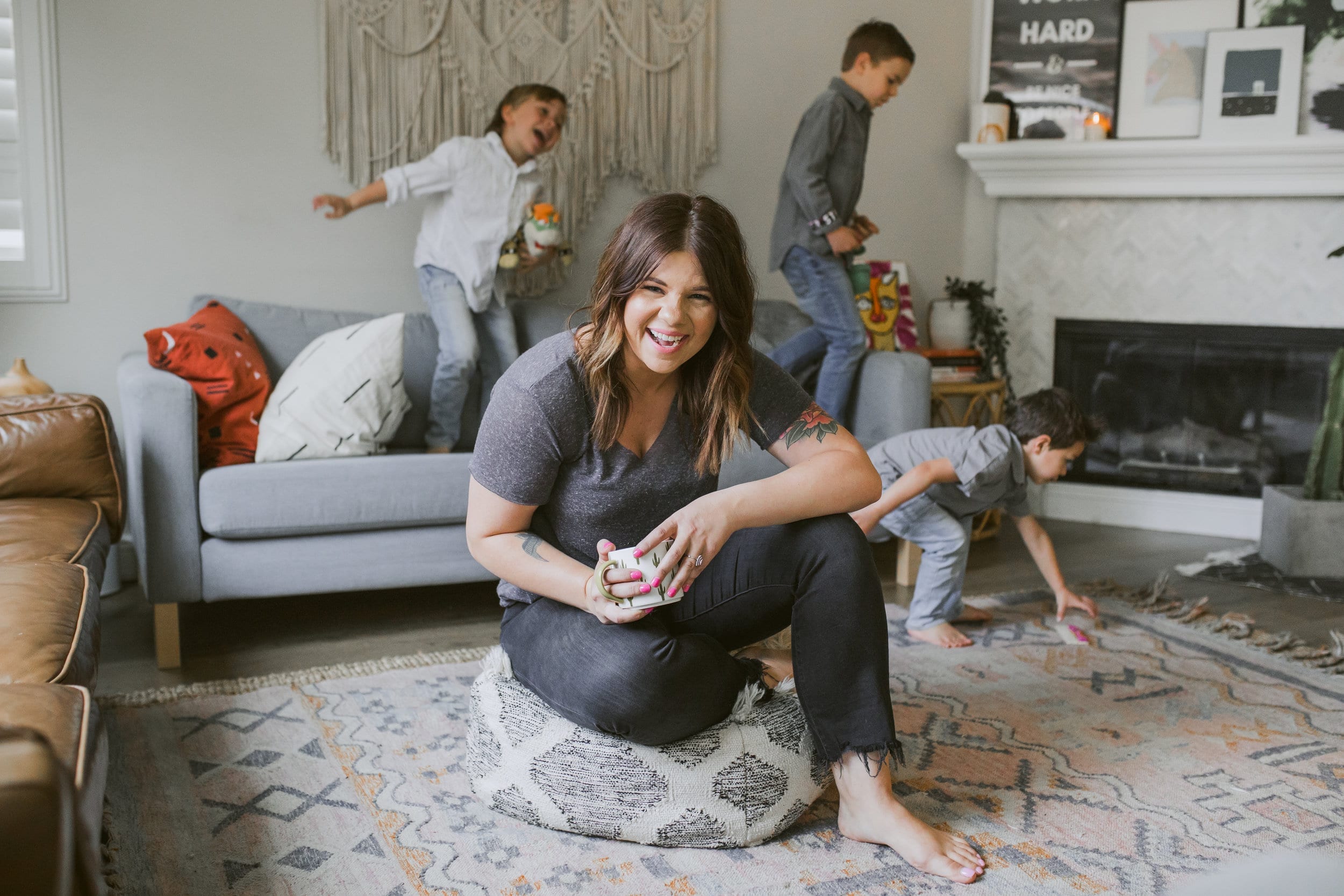

+ show Comments
- Hide Comments
add a comment